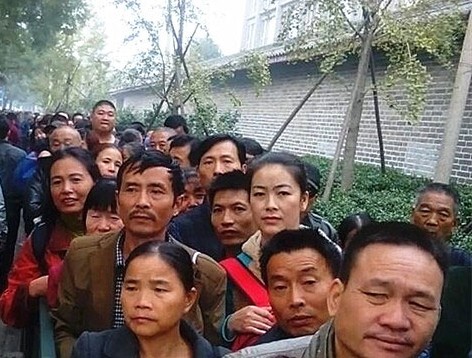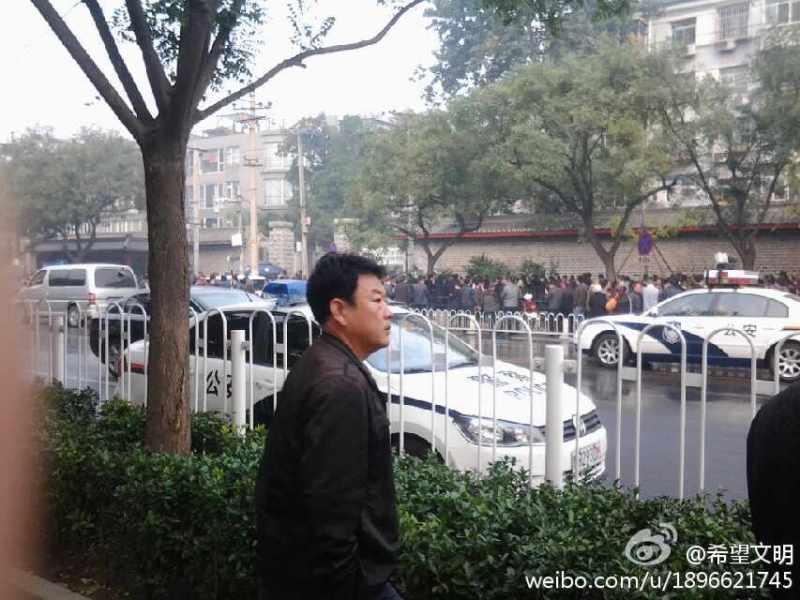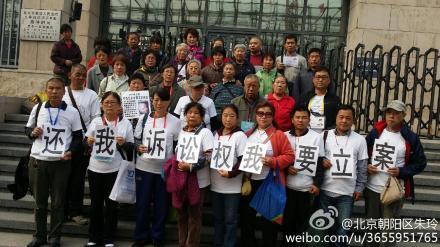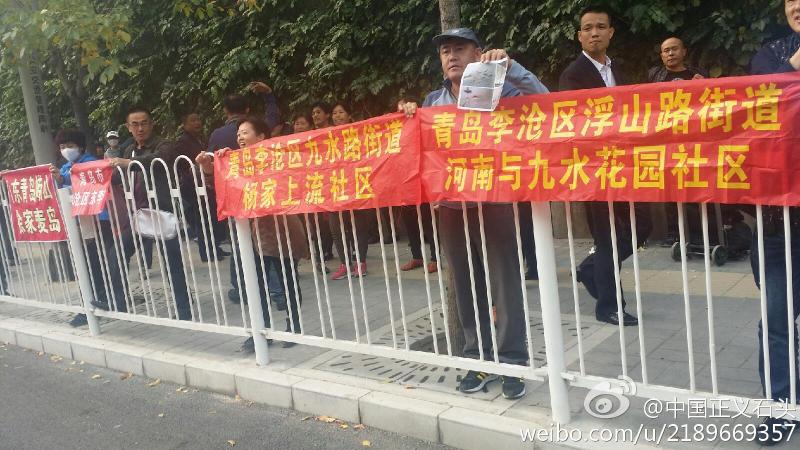More than ten thousand petitioners have been descended on Beijing to pursue appeals since October 17, three days before the Fourth Plenary Session of the 18th Party Congress took place in the national capital.
People are reportedly flocking to the State Council, the Great Hall of People and the petition bureau of the Central Commission for Discipline Inspection in Beijing.


According to one petitioner, to prevent the plenum from being interrupted, some petitioners were arrested before being sent back by provincial authorities, which are notorious for intercepting or even abducting petitioners whenever there is a high-ranking meeting session going on in Beijing.


Another petitioner from Sichuan, surnamed Chen, said that the petition offices he went to previously only had him fill out forms and did not take any of the materials they prepared.
.jpg)
China’s petition culture (literally “Letters and Visits” in Chinese) dates back to ancient imperial times, when petitioners who needed justice would came to official’s court and beat a drum before the court to voice their grievances.
After 1949, the system remained largely unaltered. Petitioners may begin their attempts for redress at the local-level with letters and calls to offices located in courthouses or in township-level government offices. If unsatisfied, they can move up the hierarchy to provincial-level offices or, at the highest level, to the State Bureau for Letters and Visits in Beijing - the modern day equivalent of beating the drum outside an imperial Yamen.
Along with the system of petitioning, the practice of intercepting petitioners who pursue higher-level appeals also remains. The number of petitioners in Beijing alone has allegedly reached more than 100,000 people, not counting those remaining at provincial capitals.
Human rights organizations have accused Chinese authorities of arbitrarily imprisoning large numbers of petitioners in “black jails” or other illicit detention facilities. In 2009, Human Rights Watch produced a report alleging that large numbers of petitioners, including children, are detained in “black jails,” and documented several allegations of torture and mistreatment in the facilities.






















0 User Comments